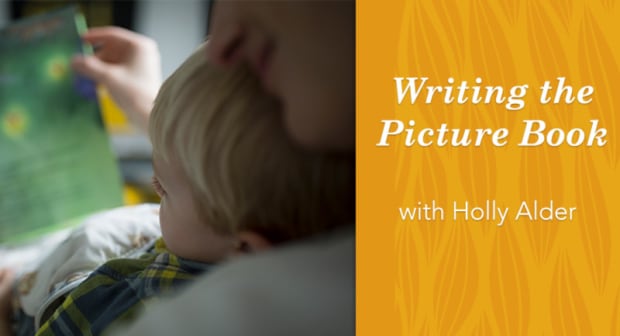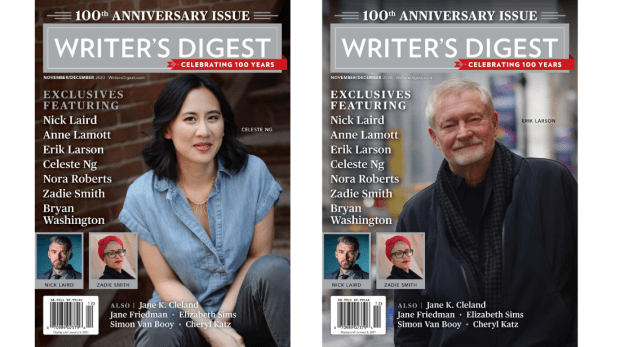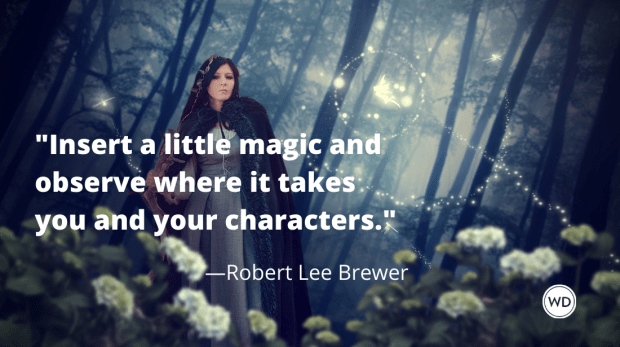“That Old Country Music” by Kevin Barry
Hannah Cryan waited in the Transit van up in the Curlews. Setanta Bromell had parked so that the van was secreted in the shade of the Forestry pines and could not easily be seen from the road. He had taken the dirtbike from the back of the van then and headed down to Castlebaldwin pissing smoke. His morning’s ambition was to rob the petrol station there with a claw hammer. Setanta was her fiancé of these recent times and, despite it all, the word still rolled glamorously to her lips.
It was the second Monday of May. She was a little more than four months pregnant. The whitethorn blossom was decked over the high fields as if for the staging of a witch’s wedding. Already the morning was humid and warm, and snaps of wind cut from the hillsides and sent the blossom everywhere in vague, drifting clouds. Even with the windows shut, her eyes streamed, and she could feel sore pulses in her throat like slow, angry worms. Setanta was thirty-two years old to her seventeen and it was not long at all since he had been her mother’s fiancé.
That’s the way it goes sometimes with close-knit families, he said.
Don’t even fucken joke about it, she said.
Setanta’s plan—if it could be held up to the light as such—was to get into the petrol station just after it opened, show the claw hammer and start roaring out of himself. As she waited on the mountain, Hannah jawed helplessly on her gums and tapped her phone for the time—it showed 7:17 a.m. and then died.
Fuckwad, she said, and threw the phone to the dash.
Castlebaldwin was a ten-minute scramble away and he’d been gone for more than twice that. The van had laboured to climb even the low mountains of the Curlews and she tried not to think deeply about its viability for escape. The drone from the N4 down below was becoming more steady, the morning traffic thickening to a stream. It was difficult to believe that just last night she had laughed with excitement as she took the first baby bump photo for her Insta and Setanta’s needle buzzed jauntily as he tattooed a lizard on his left calf. He told her in a voice scratchy with emotion that he loved her and that their souls were made of the same kind of stuff. She licked his earlobe and showed him the selfie and he cried in hard, gulpy jags. She did not remark that the lizard looked more like it had frog dimensions, really, nor that the rapid blinking effect had returned to Setanta’s left eye.
She had asked him to leave the keys of the van but he would not. When he had a plan worked out his mouth fixed into a tight hard rim like a steel toecap. In truth, she knew well that Setanta Bromell of Frenchpark was not making solid decisions lately. She sneezed and reflexively laid a hand to her belly to reassure the visitor. High slants of sunlight now breached the top of the Forestry pines and showed a stretch of scarred hillside rising to Aghanagh bog. The gorse on the higher hills was lit from the inside out an electric living yellow. Dead for half a year the Curlews were like some casual miracle reviving. Setanta Bromell said that May, always, was the number one month of the year for going mad.
Passing through the narrow kitchen of her mother’s house, four and a half months previously, he had placed a hand to her skinny hip and turned on the cow eyes and that was enough. Her mother when she’d been drinking slept like the dead. By night, it had become the custom that Setanta and Hannah would talk. She liked to listen to his stories about work. He told her about the man with the huge swastika on his back that Setanta had remodelled into the ancient flag that showed in quadrants the symbols of the four proud provinces of Ireland: the red hand, the triple crown, the hawk and dagger, the harp.
Better a “Ra head than a nazi he said.
There was a quick russety shimmer athrough the yellow gorse as a fox moved for her den. Hannah’s lip moved softly at the sight and made a wordless murmuring. Now the birds were going dipshit unseen in the hedges, in the pines. Setanta Bromell owed her mother, like, four grand? His eyes rolled up as if to see the stars when he came.
She waited. The Transit van smelled like a stale morning mouth. She listened for the growls of the dirtbike climbing the backroad but no sound rose above the birds, above the N4’s sea-like drone, above the hot wind in gusty snaps from the hillside.
Her hands lay folded loosely across her belly. She tried to do what the lady doctor at the clinic had told her to do in the panic times—she felt out her breaths on an individual basis. You had to get yourself on intimate terms with every breath that passed through your body. You had to listen to each breath as it travelled and smooth out its journey. In the Transit she sat and concentrated as well as she could but still her breaths came short and wildly.
Now the sunlight broke fully across the canopy of pines and came starkly through the van. Hannah closed her eyes against it to see dreamy pink fields on the back of her lids. She clawed at the greasy vinyl of the seat. She listened, and in the gaps between the wind it was just the birds in conference, in the high springtime excitedly, a vast and unpredictable family.
Still on the air there was not a whisper of Setanta Bromell’s dirtbike.
He did not drink much. She’d say that for him. He would sit up late while her mother slept. For a long while, they had sat at opposite ends of the L-shaped sofa, as far apart from each other as they could get, which in itself had signaled a situation. He said that particular stretches of ground had for him a lucky vibration. He said the Curlews most of all. Once a prime buck had skittered from the ditch and lurched into the side of the van and dropped stone dead of the shock and all Setanta had to do was haul it home and hang it to be skinned.
These are the type days I get in the Curlews all the time, he said.
He spoke often of fatedness and of meant-to-be’s. Then came the 3 a.m. of his soft, slow hand in the kitchen, and it was a case of smoochy-smoochy and throwing each other up against the walls before anyone knew the fuck what was going on.
She pulled down the sun visor for its mirror. She had a face on her like a scorched budgie. She detested her new self. By nature like a stick, she was taking on weight with the pregnancy. Beneath her breath, she made the words of a Taylor Swift song for distraction but the song did not take.
News headline: there was no sign of Setanta Bromell on no fucking dirtbike.
She saw him with his limbs splayed on the petrol station floor. She heard the ratchety cruel tightening of the cuffs. Or maybe the Belarussian who worked the morning shift had just hopped the counter and grabbed the hammer and laid Setanta out flat with a single bop to the broadside of the head. The Belarussian was a massive fuck who must have weighed about as much as a cement mixer. Setanta’s plan had gaps and weak spots.
Hannah Cryan climbed from the van and walked from the Forestry pines onto the backroad. By now the morning had clouded over and the vast spread of the whitethorn blossom across the hillsides and the high fields and the ditches made an ominous aura as it moved in the wind. Once, as a child, she had been slapped across the face by her mother for bringing an armful of the blossom into the house. The whitethorn flowers so much as passing the threshold was a harbinger of certain death in the family. By about the Tuesday of the next week. She had meant it as a gift for her lovely young mother.
As she sat on a five-bar gate up in the Curlew mountains the great meanness of the morning descended on her. She hummed a string of four or five notes against the meanness, not knowing where they came from nor how.
The plan was that they would drive through the day and the north to the ferry at Larne for Stranraer, and from there descend through Scotland and the Borders— she watched his lips move as he recited solemnly the steps of it—through Cumbria to Yorkshire and to his cousins in the city of Wakefield. Over the nights, as they conspired, the word “Wakefield” had taken on the burnish of legend. She saw the city lights spread out. She imagined a child with a North of England accent and a neat little flat in a tower block. She saw herself
and Setanta in the bed eating toast and taking photos of each other—his muscles flexed; her eyelashes fitted— and the toddler gurgling along in pure happiness on the rug on the floor. Setanta Bromell might soften his cough in Wakefield, she believed, and think harder about his decisions, and forget all the nonsense with the lizards and the claw hammers.
The day was up and about itself. The fields trembled.
Catastrophe was a low-slung animal creeping darkly over the ditches, across the hills.
Her mother had found her one careless morning under the throw on the sofa, topless and asleep in the hot, emotional clutches of Setanta Bromell. That had made it a morning for the annals. Since then, they had slept in two sleeping bags zipped together at his King Ink studio. The studio was located over a butcher’s shop in Boyle. It reeked of their wild love and animal death. Setanta was 18 months behind on the rent and had a notice to quit and lately this involuntary blinking in the left eye.
But desperate times, he said, very often turned out to be disguised opportunities.
Wakefield, as a shimmering prospect, was held aloft before her like a priest’s chalice.
By now she knew that he would not come back from Castlebaldwin. On the five-bar gate of a tiny farm high in the Curlew mountains she again closed her eyes for the pink fields. She went into a dream. If the moment was never-ending it might not even exist. She felt the presence of something very old and uncaring on the air. An insect’s steady keening from the ditch was incessant like a hopeless prayer or the workings of his needle. He had tattooed on her inner thigh a swallow in flight.
In the black times make you think of summer, he said.
In the black times, she thought, it’d take more than a badly-drawn swallow aiming for my fucken gash.
He was probably in the holding cell at Ballymote already. He was already on first name terms with every guard in the vicinity. Setanta Bromell was—and here the words came unbidden, as if from an old ballad recalled—already in chains. The new life within twitched with nervous expectancy. As if it knew already of all the disasters to come.
Hannah Cryan came to ascend from herself. Above the green fields and the whitethorn blossom moving in the morning wind, above the stone walls and the Forestry pines, above the inland sea of the grasses, above the broken drone of the motorway, above all of this she measured out the stretch of her seventeen years. They had been mean and slow-feeling years. She was almost as old as the century and felt it. Her man in jail and a child at the breast—it was all playing out by the chorus and verse.
Her legs weak, her step uncertain, feeling lightheaded and frightful, she trailed back to the van and climbed into it. She sucked the last warm dregs from a bottle of water on the dash but her thirst was not sated. Often he kept six-packs of sparkling water from Aldi in back of the van. For his digestion, he said, which was at the best of times troublesome.
They had been mean and slow-feeling years. She was almost as old as the century and felt it.
She got out and opened the back doors and rooted around among her fiancé’s astonishing detritus. She found no water but she did find the ten euro claw hammer from Simons Brothers hardware.
The scales of the morning fell away.
She stood by the side of the van with the claw in her hand.
She swung it hard and precisely to extract the eyes from the brute, lying face of Setanta Bromell. That the sockets might dangle and his lively tongue loll.
She hadn’t the strength to climb back in the van. She sat on the ground on the pine kernels and cried for a short while. A few months ago she had been skin and flint and edges and points—she had been hard—but now she was softened and plush like a lazy old cat. It was foreign to her. She felt slowed and mawkish with it. He had softened her merely with glances, his touch and words. More than softened, she had been opened.
On the mountain time loosened, unspooled. The fields blinked.
The gorse whispered. Morning?
It must have been coming by now for noon. If she had the legs to carry her, they might take her the five miles down to Boyle. But if she did not get past this moment, she would not have to face the next.
She looked out across the high fields. Just now as the cloudbank shifted to let the sun break through the whitethorn blossom was tipping; the strange vibrancy of its bloom would not tomorrow be so ghostly nor at the same time so vivid; by tacit agreement with our mountain the year already was turning. The strongest impulse she had was not towards love but towards that old burning loneliness, and she knew by nature the old tune’s circle and turn—it’s the way the wound wants the knife wants the wound wants the knife.
Now she heard before its sound even broke on the air the scratch and meek resolve of her mother’s Corolla. It was neither taxed nor insured. It was taken out only at moments of high emergency. These were not yet so few as her poor mother might have hoped.
And yes, here it came, inevitably, around the bend from the backroad into the Forestry pines, and Hannah felt a volley of tiny kicks within.
Lou-Lou Cryan was a hollowed woman now. She was like a reed from the drink and the nerves. She stepped from the Corolla and came soft-footed and stoically through the gloom of the pine trees to take her daughter in her arms.
Oh you poor fool, she said. Oh you poor sweet fucking fool.
The post Mom’s Ex-Fiancé Makes a Bad Boyfriend appeared first on Electric Literature.






